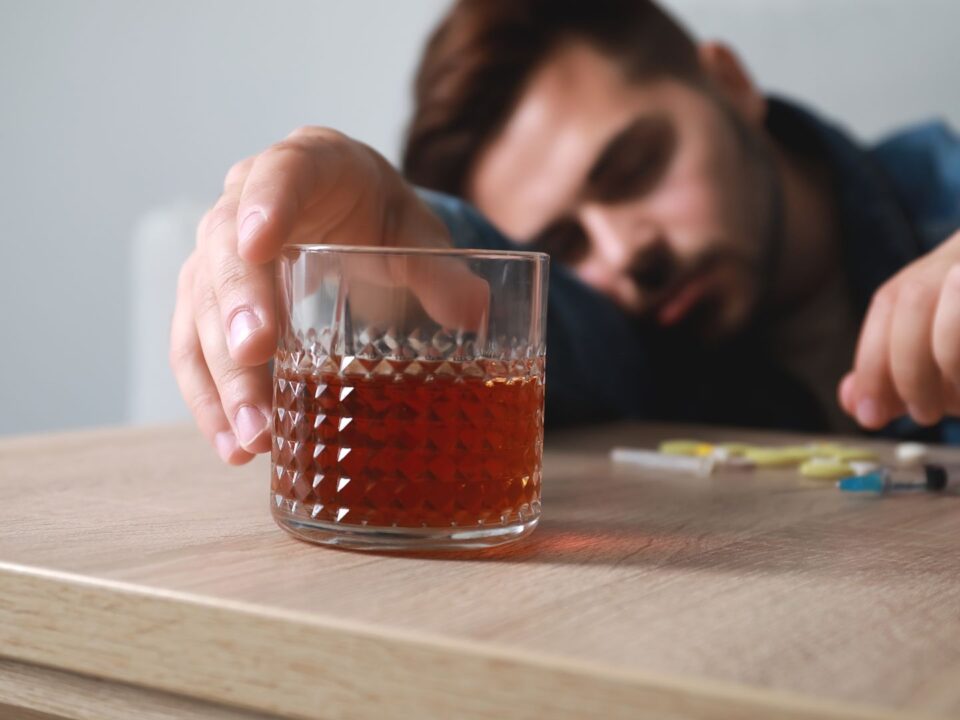
A Guide to Understanding the Treatment Process at Inpatient Mental Health Facilities in Indiana
January 28, 2025
Can Intensive Outpatient Program in Indianapolis Treat Depression?
February 6, 2025Are you or a loved one considering inpatient drug rehab but unsure of what to expect? One question that often comes up is, “How long does inpatient drug rehab typically last?” Understanding the timeline of treatment can help alleviate any anxieties or uncertainties. In this blog post, we discuss the typical duration of inpatient drug rehab and provide insights on what to expect during this transformative journey toward recovery.
Introduction to Inpatient Drug Rehab
Inpatient drug rehab, also known as residential treatment program, is a form of addiction treatment where individuals reside in a facility for a designated period of time to receive intensive therapy and support. This type of program is typically recommended for those who have severe substance abuse issues or have not had success with other forms of treatment.
The purpose of inpatient drug rehab is to provide a safe and structured environment for individuals to focus solely on their recovery without any distractions or access to drugs or alcohol. It allows patients to step away from their daily routines and triggers that may contribute to their addiction and fully immerse themselves in the healing process.
Upon entering inpatient rehab programs, patients undergo an initial assessment by medical professionals to determine the most appropriate course of treatment. This evaluation takes into account the individual’s physical health, mental health, history of substance abuse, and any co-occurring disorders.
The length of stay at an inpatient drug rehab facility can vary depending on several factors such as the severity of addiction, progress made during inpatient treatment, insurance coverage limitations, and personal circumstances. However, the typical duration ranges from 28 days to six months. It’s important to note that every person’s situation is unique and their length of stay is based on many factors.
During this time, patients participate in various therapies such as individual counseling, group therapy sessions, family therapy sessions, and experiential therapies like art or music therapy. These therapies aim to address underlying issues related to addiction while teaching coping mechanisms and relapse prevention strategies.
In addition to therapy sessions, inpatient drug rehab programs also offer educational workshops on topics such as nutrition and healthy living habits. They may also incorporate holistic approaches like yoga or meditation into their curriculum.
One of the key benefits of attending an inpatient drug rehab center is the 24/7 medical supervision provided by trained professionals. This allows for immediate intervention if any medical complications arise during detoxification or withdrawal. First City Recovery Center offers 24/7 care and security at this level of care.
As patients progress through their treatment plan and reach certain milestones set by their therapists and physicians, they may be allowed to transition to a lower level of care, such as outpatient treatment. This step-down approach helps individuals gradually reintegrate into their daily lives while still receiving support and guidance.
Inpatient drug rehab is an intensive and effective form of addiction treatment that provides individuals with the tools necessary for long-term recovery. It offers a safe and supportive environment where patients can focus on healing both physically and mentally from the grip of addiction.
Factors That Determine the Length of Inpatient Rehab
The length of an inpatient drug rehab program can vary greatly, as it is influenced by several factors. While the duration can range from 28 days to up to a year, the average length for most programs is around 90 days. However, it is important to note that every individual’s journey towards recovery is unique and there is no one-size-fits-all approach when it comes to determining the length of inpatient rehab. Here are some key factors that play a role in determining how long an individual may need to stay in an inpatient facility.
1. Severity of Addiction
One of the main factors that determine the length of inpatient rehab is the severity of addiction. For individuals with a mild substance abuse problem, a shorter program may be sufficient to help them achieve sobriety and develop effective coping mechanisms. On the other hand, those with a severe addiction may require more time in a structured environment to break free from their destructive patterns and build a strong foundation for lasting recovery.
2. Type of Substance Abused
The type of substance being abused also plays a significant role in determining the length of rehab. Certain substances, such as alcohol or sedatives, have longer withdrawal periods and require more intensive treatment than others like stimulants or marijuana. Additionally, certain types of drugs may have lingering effects on an individual’s physical and mental health even after they have stopped using them, which may warrant a longer stay at an inpatient facility.
3. Co-occurring Disorders
Many individuals struggling with substance use disorder also suffer from co-occurring mental health disorders such as depression, anxiety or post-traumatic stress disorder (PTSD). These underlying issues must be addressed during rehab for successful long-term recovery. Treatment for co-occurring disorders typically takes longer due to its complexity and requires additional therapy sessions and medication management.
4. Progress During Treatment
Another factor that can influence the length of inpatient rehab is an individual’s progress during treatment. As they go through therapy and learn to cope with triggers and cravings, some individuals may show significant progress in a shorter period of time. In such cases, therapists may recommend a gradual transition into outpatient care or extended aftercare programs to ensure continued support.
The length of inpatient drug rehab is not set in stone and can vary depending on several factors. It is important for individuals seeking treatment to understand that recovery takes time and patience, and the ultimate goal is to achieve lasting sobriety. By addressing these key factors, treatment facilities can tailor their programs according to each individual’s needs for successful outcomes.
Type and Severity of Addiction
When it comes to addiction, there are various types and levels of severity that can greatly impact the length of an inpatient drug rehab program. Understanding these factors is crucial in determining the timeline for an individual’s recovery journey.
One type of addiction is physical dependence, which occurs when the body becomes reliant on a substance to function properly. This can be seen with drugs such as opioids, where prolonged use leads to tolerance and withdrawal symptoms when trying to quit. Physical dependence often requires a longer inpatient stay as it takes time for the body to detoxify and adjust to functioning without the substance.
Another common type of addiction is psychological dependence, where a person develops a strong emotional or mental attachment to a substance. This may stem from using drugs as a coping mechanism for underlying mental health issues or traumatic experiences. In these cases, addressing the root causes and developing coping mechanisms may take longer than just focusing on physical detoxification.
The severity of addiction also plays a significant role in determining the duration of an inpatient drug rehab program. Addiction can range from mild, where occasional cravings occur but do not significantly impact daily life, to severe, where individuals experience intense cravings and struggle with controlling their use despite negative consequences.
For those with mild addictions, shorter inpatient programs (typically 30-45 days) may be sufficient in providing support and resources for recovery. However, for those with severe addictions, longer stays (60-90 days) are often recommended as it allows more time for intensive therapy and relapse prevention strategies.
It’s important to note that every individual’s journey towards recovery is unique and therefore timelines may vary depending on their specific needs. Some people may require even longer stays if they have co-occurring disorders or have faced multiple failed attempts at sobriety.
In addition to type and severity of addiction, other factors such as age, gender, family history, and overall health also play a role in determining the length of an inpatient drug rehab program. It’s essential for a treatment plan to be tailored to each person’s specific situation in order for it to be effective and successful.
The type and severity of addiction are significant factors in determining the duration of an inpatient drug rehab program. It’s crucial for individuals seeking treatment to understand these factors and work closely with healthcare professionals to develop a personalized treatment plan that meets their needs and supports their journey towards recovery.
Individual Progress and Needs
Inpatient drug rehab programs are designed to provide individuals with a safe and supportive environment to overcome their addiction. However, every person’s journey towards recovery is unique, and therefore their progress and needs may differ from others in the program. This is why it is essential for these programs to have personalized treatment plans that cater to the individual’s specific needs.
One of the main factors that can influence an individual’s progress in rehab is the severity of their addiction. Someone with a more severe addiction may require a longer stay in treatment compared to someone with a milder addiction. This is because they may need more time to address underlying issues and develop coping mechanisms to prevent relapse.
Another crucial aspect of individual progress in rehab is their attitude towards treatment. Those who are motivated and committed to getting better tend to show more significant improvements during their stay at an inpatient facility. On the other hand, those who are resistant or unwilling to participate in therapy sessions may take longer to make progress.
Additionally, each person has different needs when it comes to therapy and support services during their rehab journey. Some individuals may benefit from one-on-one counseling sessions, while others may find group therapy more helpful. Similarly, some individuals may require additional support for co-occurring mental health disorders or trauma-related issues.
The staff at an inpatient rehab centers will closely monitor each person’s progress throughout their stay and adjust their treatment plan accordingly. As they begin making improvements, they may be given more independence and responsibilities within the program as part of their continued growth.
It is important for individuals undergoing rehab not to compare themselves with others around them, as everyone’s recovery process is unique. The focus should be on personal growth rather than competing with fellow patients.
Understanding individual progress and needs plays a vital role in determining how long an individual will stay in an inpatient drug rehab program. As each person progresses at their own pace, it is difficult to put a definitive timeline on the duration of treatment. However, with personalized treatment plans and continuous monitoring, individuals can make significant strides towards recovery and lay the foundation for a sober and healthy future.
Insurance Coverage
Insurance coverage is a crucial aspect to consider when seeking treatment for substance abuse at an inpatient drug rehab facility. While the length of stay and intensity of treatment may vary from person to person, understanding your insurance coverage can help alleviate financial concerns and ensure that you receive the necessary care.
The first step in determining your insurance coverage is to contact your insurance provider or check your policy details. Most insurance plans cover some form of addiction treatment, but the level of coverage may differ depending on the type of plan you have. Some plans may cover the entire inpatient addiction treatment cost, while others may require copayments or deductibles.
It’s important to note that not all insurance providers cover inpatient drug rehab, so it’s essential to confirm with your provider beforehand. Additionally, certain treatments and services within the program may be covered while others are not. For example, some plans may include coverage for detoxification but not for therapy sessions.
If you have private health insurance through your employer, they may offer additional benefits for addiction treatment as part of their employee assistance program (EAP). This can provide additional resources and support during your time in rehab.
For those who do not have private health insurance, government-funded programs such as Medicaid or Medicare can also cover a portion or all costs associated with inpatient drug rehab. These programs are income-based and have specific eligibility criteria that must be met before receiving coverage.
When researching potential inpatient drug rehab facilities, be sure to ask about their acceptance of different types of insurance. Most reputable facilities will work directly with insurance providers to verify coverage and handle billing processes on behalf of patients.
In cases where there is no insurance coverage available or if it does not cover the full cost of treatment, many rehabs offer payment plans or sliding scale fees based on income. It’s vital to discuss these options with the facility beforehand to avoid any unexpected financial burden during recovery.
Understanding your insurance coverage for inpatient drug rehab is crucial to ensuring that you receive the necessary treatment without facing financial strain. Be sure to thoroughly research your insurance policy and the coverage options offered by different facilities before making a decision. Remember, investing in your health and well-being is always worth it in the long run.
Typical Timeline for Inpatient Drug Rehab
Inpatient drug rehab is a highly effective and intensive form of treatment for substance abuse and addiction. It involves residing in a specialized facility for an extended period of time, typically ranging from 30 days to 90 days or even longer. The length of stay can vary depending on the individual’s specific needs and progress in treatment.
To better understand the timeline of inpatient drug rehab, let’s break it down into different phases:
1. Intake and Assessment (1-2 Days)
The first step in any inpatient drug rehab program is intake and assessment. This typically takes one to two days and involves gathering information about the individual’s medical history, substance use patterns, mental health status, and other relevant factors. This information helps the treatment team create a personalized treatment plan for each patient.
2. Detox (3-10 Days)
The next phase is detoxification or detox, which is the process of ridding the body of drugs or alcohol while managing withdrawal symptoms. This phase can last anywhere from three days to ten days, depending on the type of substance abused and its severity. During this time, patients receive round-the-clock supervision and medical support to ensure their safety and comfort.
3. Primary Treatment (30-60 Days)
After completing detox, patients move on to the primary treatment phase, which can last anywhere from 30 to 60 days. This is where individuals attend therapy sessions such as individual counseling, group therapy, family therapy, psychoeducation classes, and more. These therapies help address underlying issues related to addiction while teaching essential coping skills for maintaining long-term sobriety.
4. Aftercare Planning (Last Few Days)
Toward the end of their stay at an inpatient rehab facility, patients work with their treatment team to develop an aftercare plan that will support them once they leave treatment. This may include transitioning into a sober living home, a halfway house, and/or attending outpatient programs. Other important aspects, such as finding employment, housing, and ongoing therapy, are also discussed during this time.
The typical timeline for inpatient drug rehab can last anywhere from 30 days to 90 days or longer. However, it’s essential to keep in mind that each person’s journey is unique, and the length of stay may vary depending on their progress and needs. The ultimate goal of inpatient drug rehab is to equip individuals with the tools they need to maintain long-term sobriety and lead a healthy, fulfilling life.
Detoxification Phase

The detoxification phase is an essential and often challenging part of the inpatient drug rehab process. This phase typically lasts for 3-7 days, but it can vary depending on the individual’s substance abuse history and their physical and mental health.
During this phase, individuals are closely monitored by medical professionals to ensure their safety and comfort as they go through withdrawal symptoms. Withdrawal symptoms can range from mild discomfort to severe physical and psychological distress, depending on the substance being used and the severity of the addiction.
The primary goal of detoxification is to rid the body of all traces of drugs or alcohol that have accumulated over time. It involves a combination of medication-assisted treatment, therapy, nutrition management, and other supportive measures to alleviate withdrawal symptoms.
Medications for Opioid Use Disorder (MOUD), which is also known as Medication-assisted treatment (MAT), is often used during this phase to ease withdrawal symptoms and prevent potential complications. These medications may include methadone for opioid addiction, buprenorphine for opioid or alcohol addiction, or benzodiazepines for alcohol or sedative withdrawal.
Therapy plays a crucial role in helping individuals cope with uncomfortable emotions that arise during detoxification. This includes individual counseling sessions where clients can address underlying issues that contribute to their addiction. Group therapy sessions also provide a supportive environment where individuals can share their experiences while receiving support from peers facing similar challenges.
Proper nutrition management is also vital during the detoxification process, as drugs or alcohol may have depleted essential vitamins and minerals in the body. A healthy diet plan is tailored according to each client’s needs to help replenish vital nutrients lost due to substance abuse.
Apart from these approaches, various other supportive measures such as exercise programs, relaxation techniques like yoga or meditation, massage therapy, and acupuncture may be incorporated into a personalized treatment plan based on individual needs.
The duration of detoxification may vary for each person depending on factors such as the type of substance abused, length of addiction period, overall health, and individual response to treatment. However, it is a crucial phase for achieving long-term recovery from substance abuse.
Detoxification is a critical initial step in the journey toward recovery. It helps individuals overcome their physical dependence on drugs or alcohol and prepares them for further phases of treatment. With proper medical supervision and support, clients can successfully complete this phase and move towards a healthier, sober life.
Primary Treatment Phase
The primary treatment phase is the first and most crucial step in an inpatient drug rehab program. This phase typically lasts for 30 to 90 days, depending on the individual’s specific needs and progress. During this period, clients are fully immersed in a structured environment where they can focus solely on their recovery journey.
Upon arrival at the facility, clients are assessed by a team of medical professionals to determine their physical and mental health status as well as any substance abuse issues. This assessment helps create an individualized treatment plan that addresses all aspects of the client’s addiction.
One of the main goals of the primary treatment phase is to help individuals detox safely and comfortably from drugs or alcohol. Detoxification is often accompanied by withdrawal symptoms that can be uncomfortable or even dangerous without proper medical supervision. In a medically supervised detox setting, clients have access to around-the-clock care and support, ensuring a safe transition into sobriety.
Along with detoxification, clients also participate in various therapeutic activities such as individual counseling, group therapy sessions, and educational lectures during this phase. These therapies help individuals understand the root causes of their addiction and develop coping strategies for managing triggers and cravings.
The primary treatment phase also incorporates holistic approaches such as mindfulness practices, yoga, art therapy, and other recreational activities to help individuals heal mentally, emotionally, and spiritually. These activities provide opportunities for self-reflection and personal growth while promoting overall wellness.
Clients are closely monitored by a team of therapists throughout the primary treatment phase to track their progress. As they continue to work through challenges associated with addiction recovery, they will learn invaluable skills that will aid them in maintaining long-term sobriety.
It’s worth noting that each individual has different needs when it comes to addiction treatment; therefore, some may require longer stays than others in this initial stage. The length of stay depends on factors such as the severity of addiction, co-occurring disorders (mental health conditions), and progress toward recovery goals.
The primary treatment phase in an inpatient drug rehab program is typically a 30 to 90-day period where individuals receive comprehensive care and support to overcome their addiction. It provides a safe and structured environment for individuals to focus on their recovery journey while developing essential skills for long-term sobriety.
Aftercare Planning and Follow-up Care
After completing an inpatient drug rehab program, it is essential to have a well-developed aftercare plan and follow-up care in place. This is the next crucial step towards maintaining long-term sobriety and preventing relapse.
The first aspect of aftercare planning involves creating a written plan that outlines specific strategies for maintaining sobriety. This may include attending support group meetings, therapy sessions, and continuing medication management if necessary. The plan should also address any potential triggers or challenges that could arise post-rehab and provide coping mechanisms for dealing with them.
Most rehab facilities offer personalized aftercare planning as part of their treatment programs. These plans are tailored to each individual’s needs and can include referrals to outside resources such as outpatient therapy or sober living homes.
In addition to developing an aftercare plan, it is crucial to stay connected with the recovery community. Attending regular support group meetings, such as Alcoholics Anonymous (AA) or Narcotics Anonymous (NA), can provide ongoing support and accountability. These groups allow individuals to share their experiences, receive guidance from others who have been through similar struggles, and offer a sense of community.
Continuing therapy sessions with a licensed therapist can also be beneficial in maintaining long-term sobriety. Therapy provides a safe space for individuals to work through any lingering emotional issues that may contribute to substance abuse. It also allows for continued monitoring of mental health and the development of healthy coping mechanisms.
Another critical aspect of aftercare planning is addressing any co-occurring disorders or mental health conditions that may have contributed to substance abuse. Follow-up care should include regular check-ins with healthcare professionals to monitor these conditions and adjust treatment as needed.
Family involvement can also play a significant role in the success of aftercare planning. Loved ones can serve as a source of support during this transition period by providing encouragement, setting boundaries, and participating in family therapy sessions if necessary.
It is important not only to have an aftercare plan in place but also to regularly review and adjust it as needed. As individuals progress in their recovery journey, their needs may change, and the aftercare plan should be flexible enough to accommodate these changes.
Aftercare planning and follow-up care are crucial components of a successful drug rehab program. It helps individuals maintain long-term sobriety and provides ongoing support for any challenges that may arise post-rehab. With a well-developed aftercare plan, continued involvement in the recovery community, and regular check-ins with healthcare professionals, individuals can increase their chances of maintaining sobriety and living a healthy, fulfilling life in recovery.
Benefits of Longer Inpatient Rehab Programs
Inpatient drug rehab programs can vary in length, with some lasting as little as 30 days and others extending to several months. However, longer inpatient rehab programs (typically lasting 90 days or more) have been proven to offer a range of benefits that may not be possible in shorter programs. Let’s take a closer look at the benefits of longer inpatient rehab programs.
1. More Time for Detoxification and Stabilization: The initial phase of any drug rehab program is detoxification, where the body rids itself of harmful substances and adjusts to functioning without drugs or alcohol. Longer inpatient rehab programs allow for a more gradual and supervised detox process, which can help reduce the intensity of withdrawal symptoms and improve overall success rates.
2. Addressing Underlying Mental Health Issues: Many individuals struggling with addiction also have underlying mental health disorders such as depression, anxiety, or post-traumatic stress disorder (PTSD). Longer inpatient rehab programs give patients more time to work through these issues with professional therapists and counselors who specialize in dual diagnosis treatment.
3. Developing Stronger Coping Skills: Addiction recovery is not just about staying away from drugs or alcohol treatment; it also involves learning new coping skills that can help individuals manage stress, triggers, and cravings effectively. Longer inpatient rehab programs offer ample time for patients to practice these skills through various therapies such as cognitive-behavioral therapy (CBT), mindfulness meditation, art therapy, etc.
4. Building Support Systems: Recovery from addiction requires a strong support system both during treatment and after discharge. In longer inpatient rehab programs, patients spend more time living alongside other individuals who share similar struggles and goals. This provides an opportunity for forming genuine connections and building meaningful relationships that can last beyond the program duration.
5. Reduced Risk of Relapse: Studies have shown that the risk of relapse decreases significantly with longer stays in residential treatment settings compared to shorter programs. This is because, in longer inpatient rehab programs, patients have more time to identify and address underlying issues, develop effective coping skills, and build a strong support system – all factors that can greatly contribute to long-term recovery.
While the duration of an inpatient drug rehab program may vary based on individual needs and circumstances, opting for a longer stay can offer numerous benefits that can greatly improve the chances of successful recovery. It’s essential to work closely with a professional treatment team to determine the most suitable length of stay for each individual’s unique needs.
Challenges of Long-Term Inpatient Rehab
Inpatient drug rehab is a highly effective form of treatment for individuals struggling with substance abuse. It provides a structured and supportive environment for individuals to focus solely on their recovery without the distractions and temptations of the outside world. While inpatient rehab can be incredibly beneficial, it also comes with its own set of challenges, particularly when it comes to long-term stays.
One of the main challenges of long-term inpatient rehab is the time commitment or how long does drug rehab take. Unlike shorter programs, which typically last around 30 days, long-term inpatient rehab can last anywhere from 60 days up to a year or more. This means that individuals must be willing to commit to an extended period away from their everyday lives and responsibilities. This can be difficult for some people who may have work or family obligations that they cannot put on hold for an extended period.
Another challenge is being away from loved ones for an extended period. In most cases, long-term inpatient rehab involves living at the treatment facility, which means being separated from family and friends during this critical time. This can be especially challenging for those who have strong support systems at home and may feel isolated or lonely during their stay.
The intensive nature of long-term inpatient rehab can also present its own set of challenges. Treatment typically consists of multiple therapy sessions each day, including individual therapy, group therapy, and other activities such as workshops or educational sessions. This level of intensity can be overwhelming for some individuals and may require them to dig deep into their emotions and past experiences in order to heal.
Additionally, adjusting back to everyday life after completing a long-term inpatient program can be another hurdle for many individuals. The controlled environment provided by the treatment center may not always reflect real-life situations once an individual returns home. Learning how to apply coping mechanisms learned during treatment while navigating daily stressors and triggers can take time and practice.
Despite these challenges, there are many benefits to choosing on how long is inpatient drug rehab program last. These include the time to fully address and resolve underlying issues, a more thorough understanding of addiction and recovery, and the opportunity to build a strong support network with peers who are also on a similar journey.
While long-term inpatient rehab may present its own unique set of challenges, it can also be a highly effective form of treatment for individuals struggling with substance abuse. It is important to carefully consider all aspects before committing to this type of program and to have a strong support system in place both during and after treatment. With dedication and perseverance, long-term inpatient rehab can lead to lasting recovery and a brighter future.
Alternatives to Traditional Inpatient Rehab
While traditional inpatient rehab is an effective treatment option for many individuals struggling with drug addiction, it may not be the best fit for everyone. Fortunately, there are alternative options available for those who may benefit from a different approach to recovery.
1. Outpatient Rehab: One popular alternative to traditional inpatient rehab is outpatient rehab. This type of program allows individuals to receive treatment while still living at home and attending work or school. Outpatient rehab typically consists of regular therapy sessions, group support meetings, and educational workshops. While outpatient rehab may offer more flexibility and autonomy compared to inpatient programs, it may not provide as much structure and round-the-clock support.
2. Intensive Outpatient Programs (IOPs): IOPs are similar to outpatient programs but involve a higher level of care and intensity. These programs often include longer therapy sessions multiple times per week, as well as additional services such as medication management or family counseling. IOPs may be a good option for those who have completed inpatient rehab but need continued support as they transition back into their daily lives.
3. Partial Hospitalization Programs (PHPs): PHPs provide the most intensive level of care outside of traditional inpatient rehab. Individuals attend structured therapy sessions and activities during the day but return home at night. PHPs often offer a wide range of services including medical detoxification, individual counseling, group therapy, and recreational activities.
4.Cognitive Behavioral Therapy (CBT): CBT is a form of psychotherapy that focuses on identifying negative thought patterns and behaviors leading to substance abuse and replacing them with healthier coping mechanisms. This type of therapy can be conducted on an outpatient basis with a licensed therapist or counselor.
5.Medication-Assisted Treatment (MAT): MAT combines behavioral therapy with medications specifically designed to help reduce withdrawal symptoms and cravings associated with drug addiction. This approach can be used on its own or in combination with other forms of treatment.
It’s important to note that these alternative options may not be appropriate for everyone. The level and type of care needed for successful recovery will vary from person to person. It’s essential to consult with a healthcare professional or addiction specialist to determine the best course of action for each individual’s unique needs.
While traditional inpatient rehab is a tried and true method of treating drug addiction, there are also alternative options available for those who may benefit from a different approach. Whether it’s outpatient rehab, CBT, MAT, or another form of treatment, the most crucial factor is finding a program that meets an individual’s specific needs and sets them up for long-term success in their recovery journey.






